Which Essential Oils for Cold Sores
Are you tired of dealing with pesky cold sores? Cold sores, also known as fever blisters, can be both painful and unsightly.
In this article, we will discuss what cold sores are, what causes them, and how to prevent them. We will also explore the symptoms of cold sores, how they are diagnosed, and the various treatment options available.
Delve into the world of essential oils to discover which ones are effective for treating cold sores. Learn how to use essential oils safely and effectively and whether there are any potential side effects to be aware of.
Key Takeaways:
What Are Cold Sores?
Cold sores, also known as fever blisters, are small, fluid-filled blisters that appear on or around the lips and are caused by the herpes simplex virus.
These blisters are typically painful and can be accompanied by other symptoms such as tingling, itching, or burning sensations before they appear. The herpes simplex virus, especially type 1, is the primary culprit behind cold sores. Once the virus enters the body, it stays dormant in the nerve cells until triggered by factors like stress, sunlight exposure, or weakened immunity. This activation leads to the characteristic cluster of blisters on the skin.
What Causes Cold Sores?
Cold sores are caused by the herpes simplex virus (HSV-1 or HSV-2) and often manifest during times of weakened immunity, stress, or exposure to triggers that lead to outbreaks and skin inflammation.
The herpes simplex virus is a common trigger for cold sores, with HSV-1 being the primary cause of these painful lesions around the mouth and lips. Inflammation plays a crucial role in the development of cold sores, as it creates an ideal environment for the virus to thrive. Factors such as sun exposure, hormonal changes, and even certain foods can contribute to outbreaks. Stress, both emotional and physical, can weaken the immune system and increase the likelihood of cold sore flare-ups.
How to Prevent Cold Sores?
Preventing cold sores involves strengthening the immune system, avoiding triggers that activate the herpes simplex virus, and considering antiviral medications like Valacyclovir to minimize outbreaks.
One of the key aspects of supporting your immune system to prevent cold sores is maintaining a healthy lifestyle through a balanced diet rich in vitamins and minerals. Ensuring you get sufficient rest and manage stress effectively also plays a crucial role in boosting immunity. Identifying your personal triggers, such as exposure to strong sunlight or certain foods, can help you steer clear of situations that may provoke a cold sore outbreak.
Avoid Triggering Factors
To avoid cold sore outbreaks, it is essential to identify and steer clear of triggering factors that may activate the herpes simplex virus, such as exposure to sunlight, stress, or certain foods.
Exposure to sunlight can be a major trigger, as the UV rays can weaken the immune system, making the body more susceptible to viral activation. Stress is notorious for lowering immune defenses, giving the virus an opportunity to surface. Certain foods high in arginine, like chocolate, nuts, and seeds, can also provoke cold sores due to their ability to stimulate the virus.
To manage these triggers, incorporating sunscreen into your daily routine when outdoors can shield your lips from the sun’s harmful effects. Engaging in stress-reducing activities such as yoga or meditation can help minimize emotional triggers. Regulating your diet to include more lysine-rich foods and avoiding arginine-heavy items may prevent outbreaks.
Practice Good Hygiene
Maintaining good hygiene practices, including regular handwashing, avoiding sharing personal items, and keeping the affected skin clean, can help reduce the spread of cold sores and potentially aid in their healing process.
Hygiene is crucial in preventing cold sores due to their contagious nature.
- Individuals should also refrain from touching the sores to minimize transmission.
- Using disposable tissues for nose blowing and sneezing, along with regularly cleaning and disinfecting commonly touched surfaces, are essential in managing cold sore outbreaks.
- Applying sunscreen to the lips can prevent new outbreaks triggered by sun exposure.
- In cases of frequent or severe cold sores, considering antiviral medications such as Valacyclovir under medical supervision can help in reducing the duration and severity of episodes.
Boost Your Immune System
Strengthening the immune system through a balanced diet, regular exercise, and sufficient rest can play a crucial role in reducing the frequency and severity of cold sore outbreaks. In some cases, antiviral medications like Valacyclovir may also be prescribed to bolster the body’s defense mechanisms.
Introducing certain immune-supporting supplements, such as vitamin C, zinc, and echinacea, can further enhance the body’s ability to combat the herpes simplex virus responsible for cold sores.
Maintaining low stress levels and getting good quality sleep are also essential factors in keeping the immune system strong and effectively fighting off potential outbreaks.
Avoiding excessive sun exposure and using lip balm with SPF protection can help prevent triggering factors for cold sores.
What Are the Symptoms of Cold Sores?
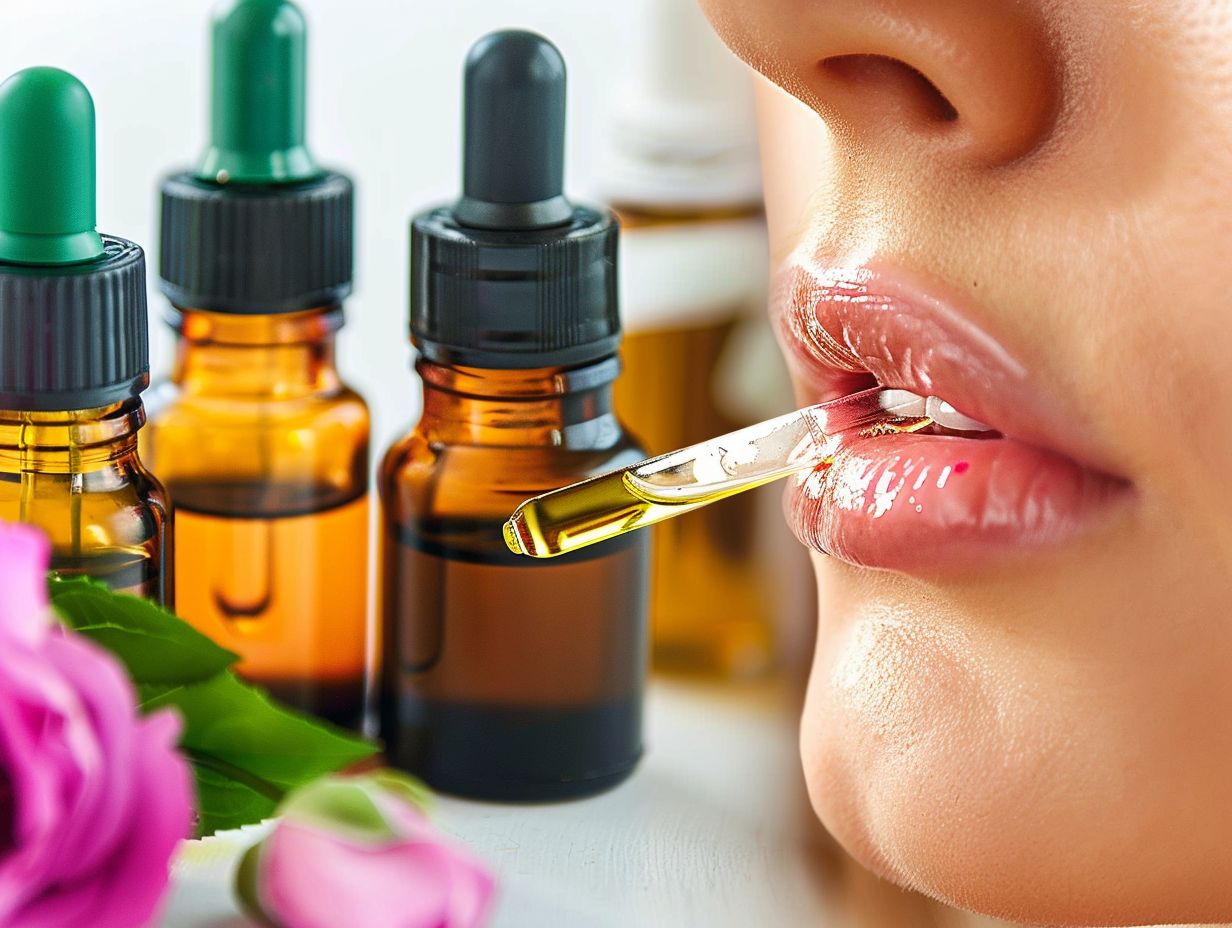
These tingling or burning sensations are often the first indicators of an upcoming cold sore eruption. As the virus becomes active, the affected area can feel sensitive and itchy. Over time, the small fluid-filled blisters form, causing discomfort and potential pain. The blister stage is usually the peak of discomfort, where pain and tenderness are commonly experienced.
- During the blister phase, the skin may swell, and the blisters can rupture, releasing clear fluid and causing further irritation. It is essential to avoid touching or picking at the blisters to prevent infection and aid the healing process.
- Following the blister formation, the crusting phase begins, where the blisters dry out and form a yellowish crust or scab. While this stage may seem unsightly, it is a sign that the cold sore is healing.
How Are Cold Sores Diagnosed?
Cold sores are typically diagnosed based on the appearance of characteristic symptoms, such as fluid-filled blisters on the skin around the lips, in conjunction with a medical history review by a healthcare provider.
Healthcare professionals often look for visual cues such as clusters of small blisters that may break, ooze, crust over, and eventually heal. The symptom recognition is vital in identifying cold sores from other skin conditions.
During the medical history review, patients may be asked about their previous cold sore occurrences, triggers, and any relevant medical conditions that could impact their immune system’s response to the virus. All these aspects play a crucial role in confirming a cold sore diagnosis.
What Are the Treatment Options for Cold Sores?
Treatment options for cold sores include over-the-counter medications, prescription antiviral drugs like Valacyclovir, and various home remedies that aim to alleviate symptoms and promote healing.
Over-the-counter (OTC) medications such as creams containing docosanol or benzyl alcohol can help relieve pain and itching. Prescription antiviral drugs like Valacyclovir are often prescribed to speed up the healing process and reduce the severity of outbreaks.
Popular home remedies like applying ice packs, lemon balm, tea tree oil, or aloe vera gel can provide soothing relief. Some people find that lysine supplements or dietary changes may also help prevent recurrent cold sores.
Over-the-counter Medications
Over-the-counter medications for cold sores typically include creams or ointments that contain antiviral agents to help reduce pain, inflammation, and promote healing of the affected skin.
Common antiviral agents found in these products include docosanol and acyclovir. These agents work by inhibiting the replication of the herpes simplex virus, which is the main cause of cold sores. By preventing the virus from spreading, these medications can help decrease the duration and severity of cold sore outbreaks.
Along with antiviral properties, some OTC cold sore creams may also contain ingredients like lidocaine or benzocaine to provide local anesthesia, reducing discomfort and pain.
Regular application of these medications directly on the affected area can help soothe the skin, minimize itching or burning sensations, and accelerate the healing process. They are usually recommended to be applied multiple times a day until the symptoms subside.
Prescription Antiviral Medications
Prescription antiviral medications such as Valacyclovir are often recommended for severe or recurrent cold sore cases, as they can help reduce the duration and severity of outbreaks by inhibiting viral replication.
Valacyclovir, a type of antiviral drug, works by interfering with the ability of the herpes virus to multiply in the body. By inhibiting the viral DNA replication process, Valacyclovir helps to slow down the spread of the virus, thereby reducing the severity of symptoms and promoting faster healing of cold sores.
Valacyclovir not only aids in managing acute symptoms but also plays a crucial role in preventing future outbreaks. By keeping the virus in check, it reduces the frequency and intensity of recurrent cold sores, providing relief to individuals dealing with this common viral infection.
Home Remedies
Home remedies for cold sores often involve the use of natural ingredients such as essential oils like Tea Tree, Lavender, Peppermint, and Lemon Balm, known for their antiviral and soothing properties.
These essential oils are rich in compounds like terpenes, alcohols, and phenols that exhibit potent antiviral activities. When applied topically,
Tea Tree
oil can help reduce viral replication, while
Lavender
oil’s calming scent not only aids in relaxation but also promotes skin healing.
Peppermint
oil’s cooling sensation can alleviate pain and inflammation from cold sores, and
Lemon Balm
oil is believed to inhibit the herpes simplex virus responsible for these sores.
What Are Essential Oils?
Essential oils are concentrated plant extracts obtained through distillation or extraction processes, known for their aromatic properties and therapeutic benefits when applied topically or inhaled.
These oils are extracted from various parts of plants, including flowers, leaves, stems, and roots, each contributing unique fragrances and healing properties.
The distillation process involves steaming the plant material, capturing the volatile compounds, and condensing them into a liquid form.
On the other hand, extraction methods may use solvents or cold pressing to obtain the precious oils.
With their diverse applications, essential oils can be used in aromatherapy, massage therapy, skincare, and even household cleaning products.
The benefits of essential oils range from promoting relaxation and reducing stress to aiding in digestion and boosting immunity.
Whether diffused in the air, added to bath water, or mixed with carrier oils for massage, these natural remedies have been embraced for their holistic approach to health and wellness.
Which Essential Oils Are Effective for Cold Sores?
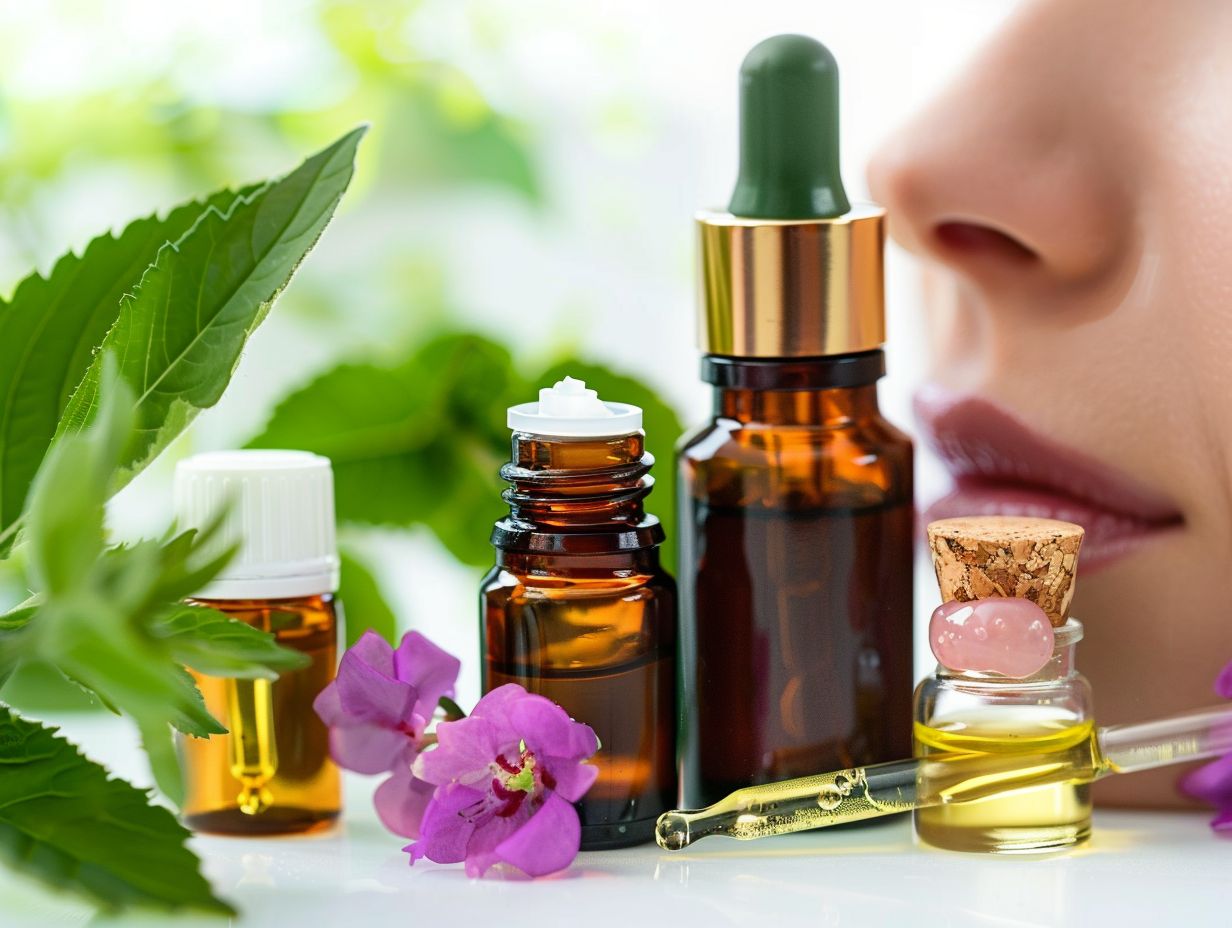
Tea Tree oil is renowned for its potent antiviral and antibacterial properties, making it a popular choice for cold sore treatment. Its ability to inhibit the herpes simplex virus, the root cause of cold sores, can help reduce inflammation and promote faster healing.
Peppermint oil, known for its cooling sensation and soothing effect, can provide relief from the discomfort associated with cold sores. Its antiviral properties work effectively in combating the virus and reducing the duration of outbreaks.
Lemon Balm oil, with its rich content of antiviral compounds, can not only help in soothing the affected area but also accelerate the healing process. Its calming aroma further aids in reducing stress, which can trigger cold sore flare-ups.
Tea Tree Oil
Tea Tree oil is a potent essential oil known for its antiviral and antibacterial properties, making it a popular choice for treating cold sores by reducing viral activity and promoting skin healing.
Tea Tree oil’s antiviral benefits stem from its ability to inhibit the replication of viruses, such as the herpes simplex virus, which is responsible for cold sores. By disrupting the virus’ ability to reproduce and spread, Tea Tree oil helps control the infection and speeds up the healing process.
The antibacterial properties of Tea Tree oil make it effective in preventing secondary bacterial infections in cold sores, reducing the risk of complications.
For optimal results, Tea Tree oil can be applied topically to the affected area using a cotton swab or diluted with a carrier oil for sensitive skin.
Peppermint Oil
Peppermint oil is a cooling essential oil that offers pain relief and soothing effects when applied topically to cold sores, providing comfort and reducing discomfort associated with outbreaks.
One of the key properties of Peppermint oil is its ability to numb the area around cold sores, which can help alleviate the stinging sensation often experienced during outbreaks. The cooling effect also helps to reduce inflammation and swelling, promoting faster healing.
Peppermint oil has anti-inflammatory and antibacterial properties that can assist in keeping the affected area clean and free from infection. Its analgesic qualities make it a popular choice for managing the pain that comes with cold sores.
To best apply Peppermint oil for cold sore relief, consider diluting it with a carrier oil like coconut oil to prevent skin irritation. Dab a small amount directly onto the cold sore using a cotton swab, ensuring it is properly absorbed for maximum benefits.
Lemon Balm Oil
Lemon Balm oil, derived from the Melissa plant, is revered for its antiviral properties that can help inhibit the herpes simplex virus, reduce inflammation, and accelerate skin healing in cold sore-affected areas.
Lemon Balm oil’s antiviral prowess stems from its high concentration of compounds such as rosmarinic acid and flavonoids. These potent components work synergistically to combat the herpes simplex virus, thwarting its ability to replicate and spread.
When applied topically, Lemon Balm oil forms a protective barrier over the affected area, helping to soothe discomfort, relieve itching, and promote faster recovery. Its anti-inflammatory properties contribute to reducing swelling and redness associated with cold sores, while also easing pain.
To optimize the efficacy of Lemon Balm oil for cold sore treatment, it is recommended to apply a diluted solution directly onto the affected area using a clean cotton swab or gentle dabbing motion. Regular, consistent application can yield quicker results and alleviate symptoms more effectively.
Eucalyptus Oil
Eucalyptus oil is valued for its antiviral and anti-inflammatory properties, offering relief from cold sore symptoms by combating viral activity and reducing skin inflammation, promoting a faster healing process.
Due to its potent antiviral compounds, eucalyptus oil helps inhibit the replication of cold sore-causing viruses, limiting their spread and accelerating recovery.
The anti-inflammatory nature of eucalyptus oil calms skin irritations and redness associated with cold sores, providing a soothing sensation and aiding in the overall healing of the affected area.
To maximize the benefits of eucalyptus oil for cold sores, it is recommended to dilute a few drops in a carrier oil like coconut or olive oil before gently applying it to the affected area using a clean cotton swab. Regular application can help alleviate discomfort and expedite the healing process.
How to Use Essential Oils for Cold Sores?
When using essential oils for cold sores, it is important to dilute them with a carrier oil such as coconut oil to prevent skin irritation, and apply the mixture topically on the affected area for soothing and healing effects.
Before application, always ensure that you perform a patch test to check for any allergic reactions.
- To maximize the benefits of essential oils, consider combining them with antiviral properties like tea tree or lavender oil.
- For a cooling sensation and additional relief, try storing your oil blend in the fridge before use.
Remember that consistency is key when using essential oils for cold sore treatment.
| Application Method | Frequency |
|---|---|
| Direct Application with clean cotton swab | 2-3 times a day |
| Combining with cold compress | As needed |
By following these guidelines, you can effectively harness the healing properties of essential oils while ensuring safe and gentle care for your skin.
Are There Any Side Effects of Using Essential Oils for Cold Sores?
While essential oils are generally well-tolerated, there is a risk of potential side effects such as skin irritation or allergic reactions, especially in individuals with sensitivities to certain oils or ingredients.
It is crucial to always perform a patch test before applying any essential oil to the skin. This simple test involves applying a diluted form of the oil to a small area and waiting to see if any adverse reactions occur. This can help identify any allergies or sensitivities before full application.
If you experience any negative reactions after applying an essential oil, such as redness, itching, or swelling, immediately stop using the oil and wash the area with mild soap and water. If the reaction persists, seek medical advice promptly.
When using essential oils for cold sores, always follow recommended dilution ratios and avoid applying them directly to broken skin or open wounds. Diluting essential oils with a carrier oil can help reduce the risk of irritation and promote safer usage.
Frequently Asked Questions
Which Essential Oils for Cold Sores?
There are a variety of essential oils that can help with cold sores, including:
- Tea Tree Oil
- Lemon Balm Oil
- Peppermint Oil
- Lavender Oil
- Eucalyptus Oil
- Chamomile Oil
How does Tea Tree Oil help with Cold Sores?
Tea Tree Oil has antiviral and anti-inflammatory properties, making it effective in treating cold sores. It can help reduce the duration and severity of outbreaks and also soothe the affected area.
Can Lemon Balm Oil be used for Cold Sores?
Yes, Lemon Balm Oil, also known as Melissa Oil, has been shown to have antiviral properties and can help with cold sores. It can also reduce pain and swelling associated with cold sores.
Is Peppermint Oil safe to use for Cold Sores?
Peppermint Oil has antiviral and anti-inflammatory properties, but it is important to dilute it properly before applying it to the affected area. It is also recommended to do a patch test before using it on a larger area.
How does Lavender Oil benefit Cold Sores?
Lavender Oil has antiseptic and anti-inflammatory properties, making it beneficial for cold sores. It can help reduce pain and promote healing of the affected area.
Can Eucalyptus Oil be used for preventing Cold Sores?
Eucalyptus Oil has antiviral and antibacterial properties, which can help prevent cold sores from developing or spreading. It can also provide relief from pain and discomfort associated with cold sores.
Is Chamomile Oil effective for Cold Sores?
Chamomile Oil has anti-inflammatory and antiviral properties, making it a useful essential oil for cold sores. It can help reduce swelling and redness, and also speed up the healing process.

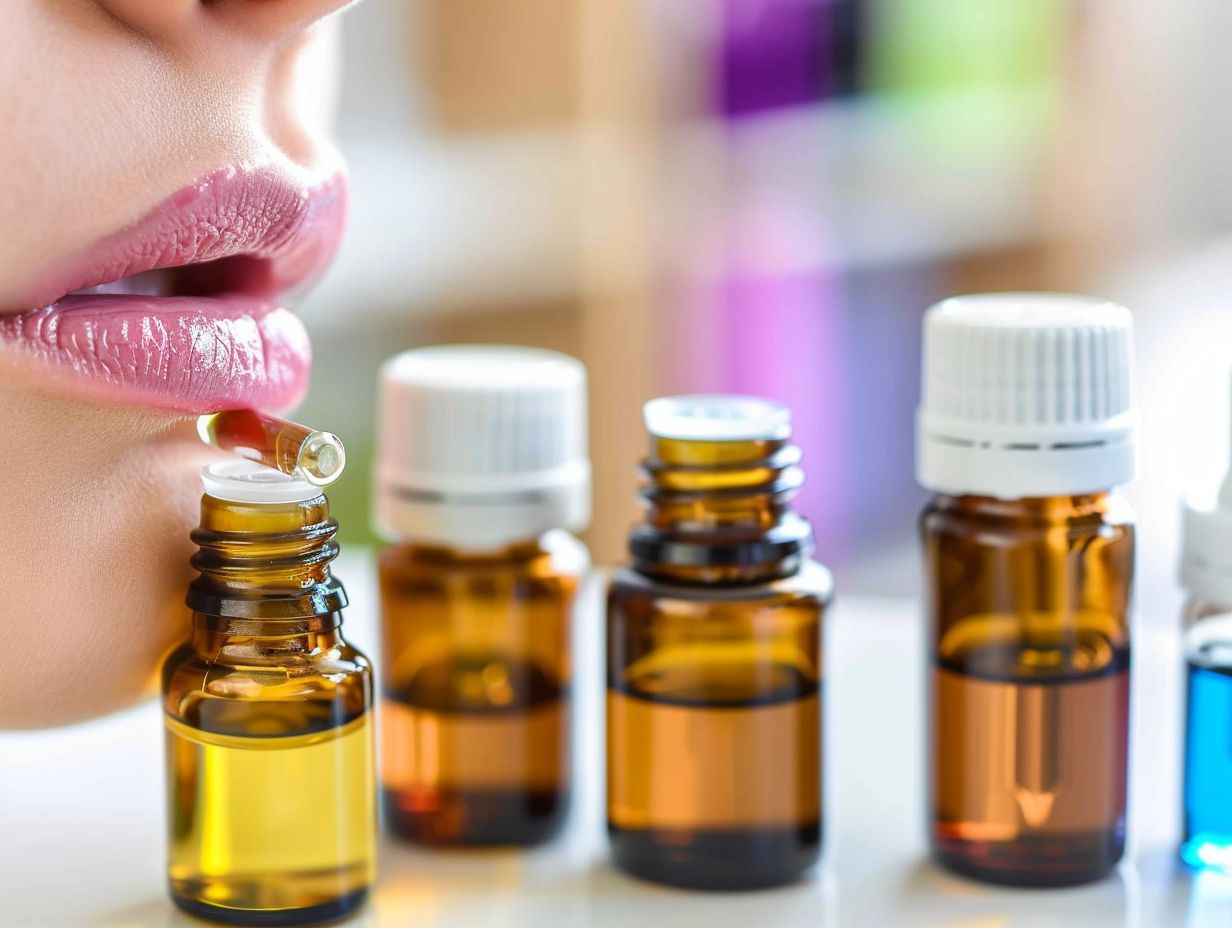
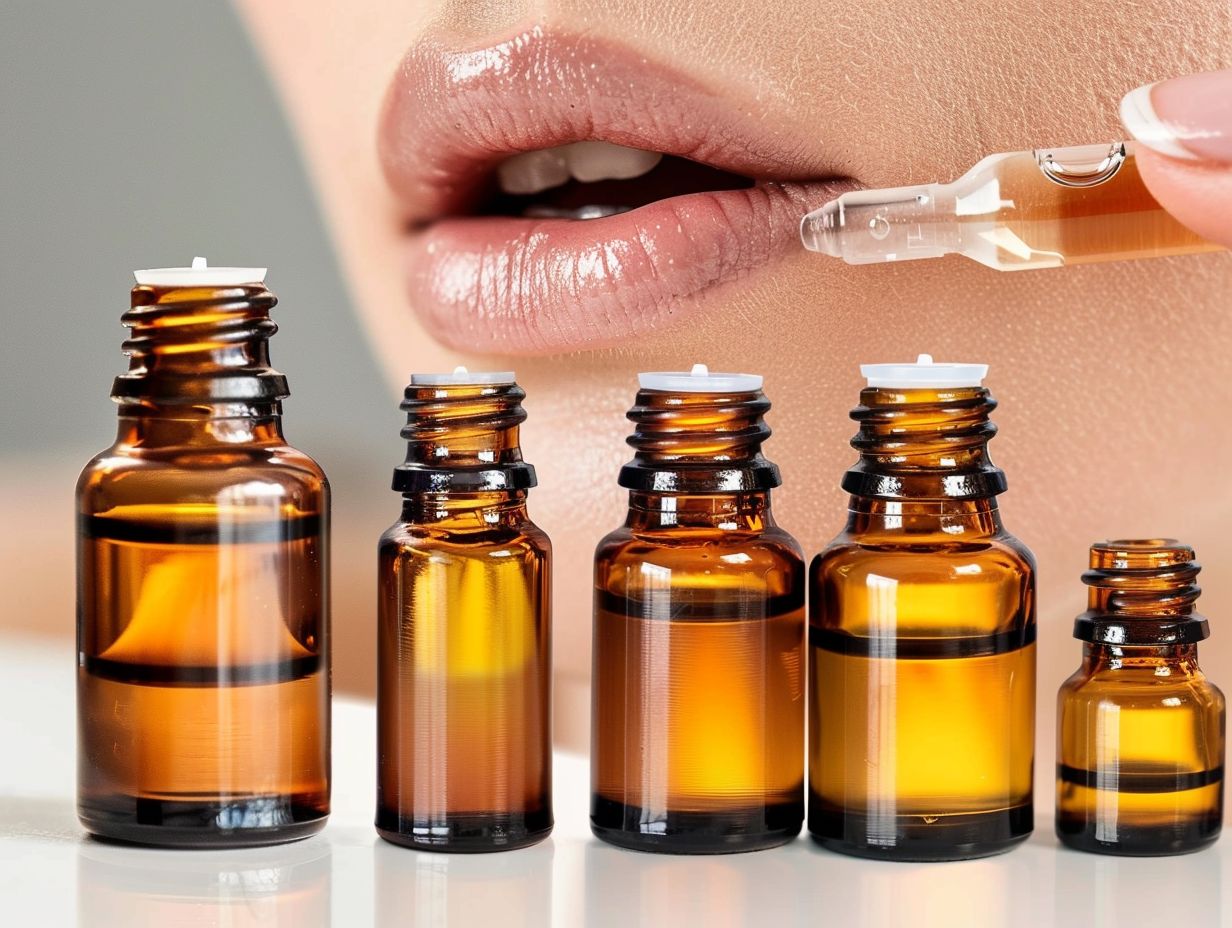
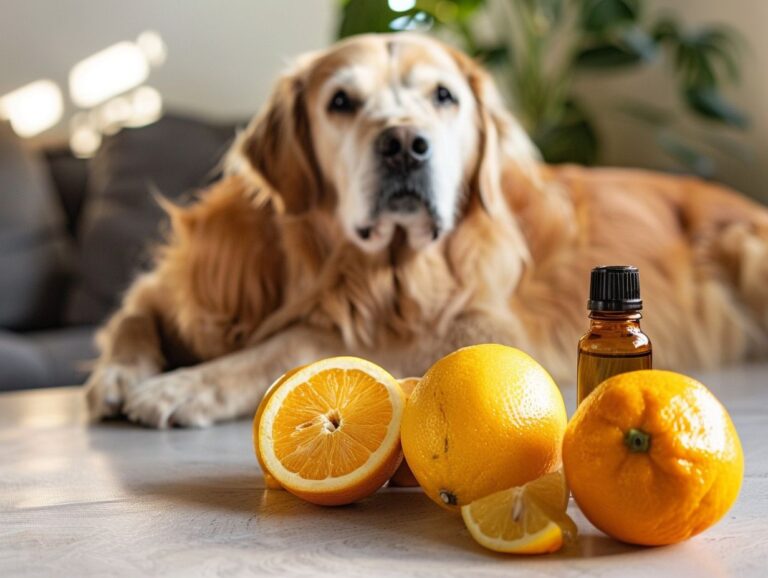

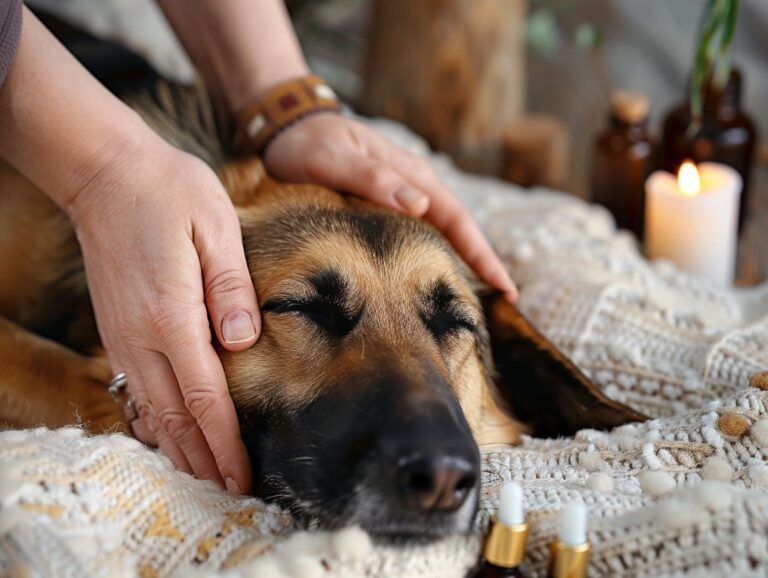
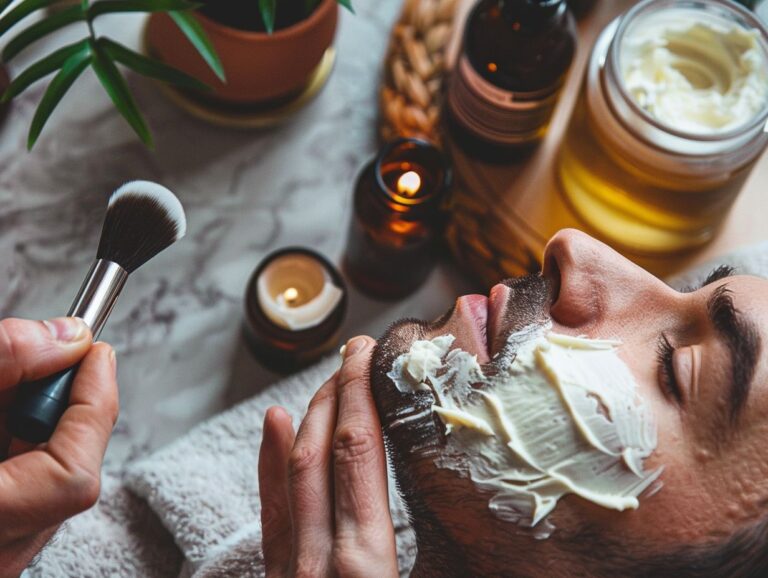
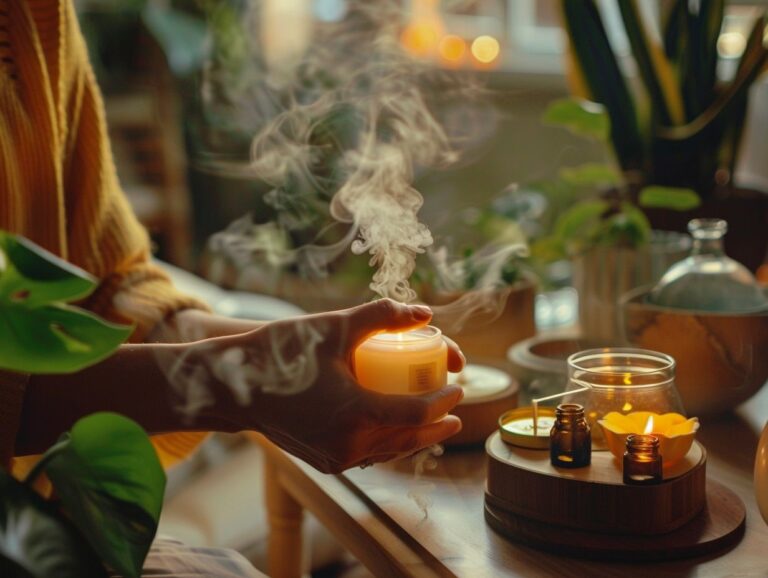

One Comment